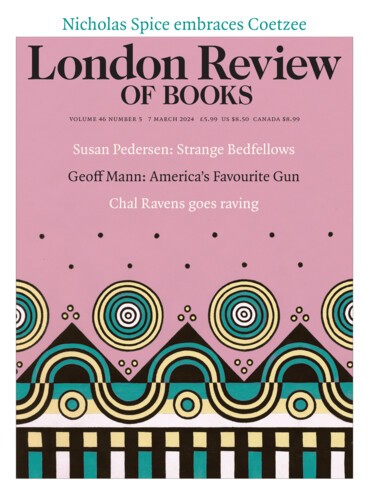A crown decayed or unfinished. Disarticulated bricks. An echo.
The cannon face the rolling breakers,
aiming at the line where sky and sea collude.
What do they defend? The wild enclosure,
which for two centuries has lived on rain.
Sixteen million bricks encircle sixteen acres.
There are no nymphs where there is no plenitude
of springs, though the sand is quite pure
that can’t take the imprint of pain.
Here the sea disappears; through the premises
runs an inspissate whisper of tall grass
and low trees like kinked rope. What they meant
who can say, anchoring promises
of glory in the treasonous dunes? Alas,
the truth is, there was never an engagement.
The truth is, there was never an engagement
that did not involve a ring like this brick ring
facing off against the sea. My favourite mystery,
as a child, was one where a missing fiancée,
heiress to a castle, set her footprint in cement
near a fountain where Nancy Drew was trespassing.
Features of the imagination take on symmetry
from early exposure to gazebos, loggias – to ballet –
and the missing girl was a dancer. On the prowl,
Nancy Drew discovered the ruined gardens
behind the crumbling wall, so is it any wonder
I meander in a daze under keening seafowl,
and the ghost of a thousand rejected pardons,
to climb to the bastions just as I hear thunder?
Climbing to the bastions just as it thundered,
I could take in the whole key. The terns cry,
circling their rookery. I stumble into the wind,
no guardrails. The sea opens up a debris field,
where the Spanish galleons foundered,
and the rumour of treasure comes to die.
Bejewelled reefs are the real find:
in a suspension of aquamarine, they yield
guardian angelfish around an ancient hull.
‘The Imperfect and the Historical Perfect, hence,
serve to illustrate one another,’ I read in a lull.
The Ideal Conditional is the fanciful,
the Unreal Conditional the tragic tense:
‘That which is Unfulfilled or Impossible’.
That which is unfulfilled or impossible
figures as this sea gale that batters the walls.
The tingle at the back of my knees tells me
to descend, back down the helical staircase,
which spirals to the ground like a shell,
and like a sea shell or a mortar shell what appals
is the idea of destruction imbedded in beauty.
Yet the world is everything which is the case:
‘Verbs of Reminding, Remembering and Forgetting,
take the Genitive: Ipse iubet mortis te meminisse deus,
A god himself bids you remember death.’
The rain sails by and spares us, and if I were betting
on the likelihood of rainbows, I would lose:
they’re factored into sight by a hair’s breadth.
Factored into sight by a hair’s breadth,
or the turn of the tide, a shoulder breaking
the surface is just a shoal. No nymph. No
happy ending of disarticulated bricks.
The heiress fit her foot in the imprint beneath
the fountain, proving the identity she’d forsaken.
(She’d broken her spine, and gone incognito:
No more high-heeled spins and kicks.)
Iambs arose from marching feet, not dance
(says the grammar book). Here were convicts
and slaves. The fort is sinking peu à peu.
Bleak dry coral islet in the Gulf where by chance
I find a trailing vine of pink convolvulus
in whose trumpets lie, oh, tiny mutes of dew.
Th can on f ce t e roll ng br akers
… achers
wh ch for t o ce tur ies as l ved o rain
… reign
H re th se dis pp rs throu t e pr mi ses
… misses
w o c n sa anc ori g pr m ses
… says
fro earl e po ur to gaz b s, logg s—t ba let—
… lay
‘Th ich is Un ulfi led or Impo sible’
… sybil
whi h sp rals to the gr und like a she l
… hell
Send Letters To:
The Editor
London Review of Books,
28 Little Russell Street
London, WC1A 2HN
letters@lrb.co.uk
Please include name, address, and a telephone number.

